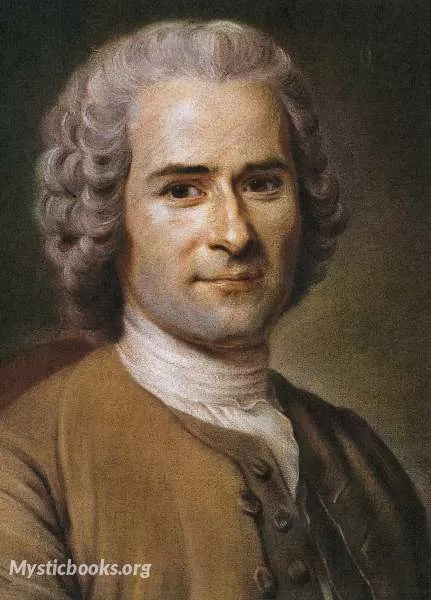
Timeline
Title
Country/Nationality
Jean-Jacques Rousseau
Jean-Jacques Rousseau was a Genevan philosopher, writer, and composer. His political philosophy influenced the progress of the Enlightenment throughout Europe, as well as aspects of the French Revolution and the development of modern political, economic and educational thought.
Rousseau based his political philosophy on contract theory and his reading of Hobbes.
Theory of human nature
The first man who, having fenced in a piece of land, said 'This is mine', and found people naïve enough to believe him, that man was the true founder of civil society. From how many crimes, wars, and murders, from how many horrors and misfortunes might not any one have saved mankind, by pulling up the stakes, or filling up the ditch, and crying to his fellows: Beware of listening to this impostor; you are undone if you once forget that the fruits of the earth belong to us all, and the earth itself to nobody.
— Rousseau 1754
His Discourse on Inequality and The Social Contract are cornerstones in modern political and social thought. Rousseau's sentimental novel Julie, or the New Heloise (1761) was important to the development of preromanticism and romanticism in fiction. His Emile, or On Education (1762) is an educational treatise on the place of the individual in society. Rousseau's autobiographical writings—the posthumously published Confessions (composed in 1769), which initiated the modern autobiography, and the unfinished Reveries of the Solitary Walker (composed 1776–1778)—exemplified the late-18th-century "Age of Sensibility", and featured an increased focus on subjectivity and introspection that later characterized modern writing.
Rousseau befriended fellow philosophy writer Denis Diderot in 1742, and would later write about Diderot's romantic troubles in his Confessions. During the period of the French Revolution, Rousseau was the most popular of the philosophers among members of the Jacobin Club. He was interred as a national hero in the Panthéon in Paris, in 1794, 16 years after his death.
Books by Jean-Jacques Rousseau
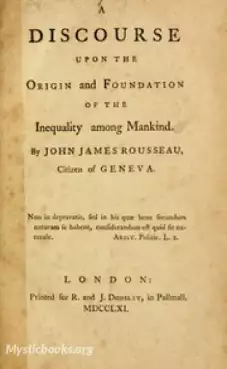
A Discourse Upon the Origin and the Foundation of the Inequality Among Mankind
Discourse on the Origin and Basis of Inequality Among Men also commonly known as the "Second Discourse", is a 1755 work by philosopher Jean-Jacques Rousseau. Rousseau first exposes in this work his conception of a human state of nature, broadly belie...
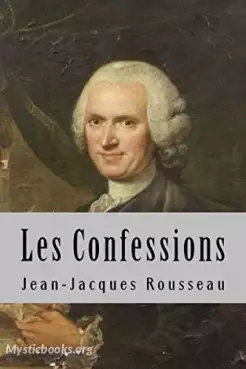
Confessions, Volume 1
The Confessions is an autobiographical book by Jean-Jacques Rousseau. In modern times, it is often published with the title The Confessions of Jean-Jacques Rousseau in order to distinguish it from Saint Augustine's Confessions. Covering the first fif...
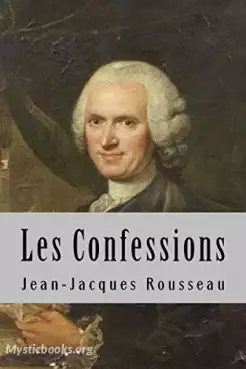
Confessions, Volume 2
The Confessions is an autobiographical book by Jean-Jacques Rousseau. In modern times, it is often published with the title The Confessions of Jean-Jacques Rousseau in order to distinguish it from Saint Augustine's Confessions. Covering the first fif...
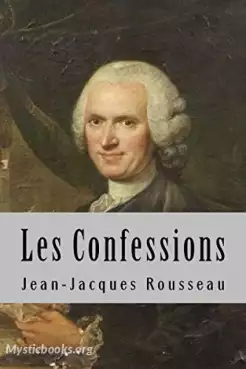
Confessions, Volume 3
The Confessions is an autobiographical book by Jean-Jacques Rousseau. In modern times, it is often published with the title The Confessions of Jean-Jacques Rousseau in order to distinguish it from Saint Augustine's Confessions. Covering the first fif...
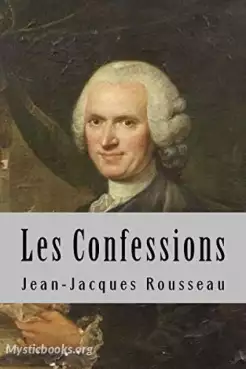
Confessions, Volume 4
The Confessions is an autobiographical book by Jean-Jacques Rousseau. In modern times, it is often published with the title The Confessions of Jean-Jacques Rousseau in order to distinguish it from Saint Augustine's Confessions. Covering the first fif...
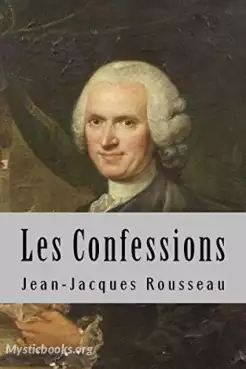
Confessions, Volume 5
The Confessions is an autobiographical book by Jean-Jacques Rousseau. In modern times, it is often published with the title The Confessions of Jean-Jacques Rousseau in order to distinguish it from Saint Augustine's Confessions. Covering the first fif...
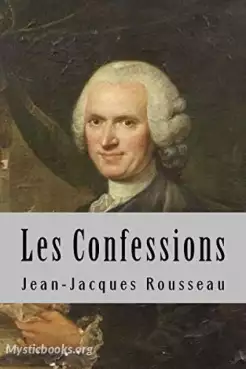
Confessions, Volume 6
The Confessions is an autobiographical book by Jean-Jacques Rousseau. In modern times, it is often published with the title The Confessions of Jean-Jacques Rousseau in order to distinguish it from Saint Augustine's Confessions. Covering the first fif...
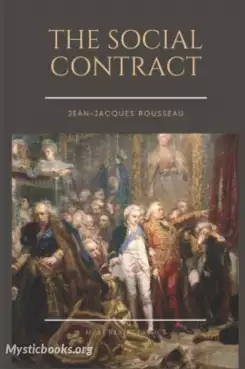
The Social Contract
The Social Contract, originally published as On the Social Contract; or, Principles of Political Right by Jean-Jacques Rousseau, is a 1762 book in which Rousseau theorized about the best way to establish a political community in the face of the probl...
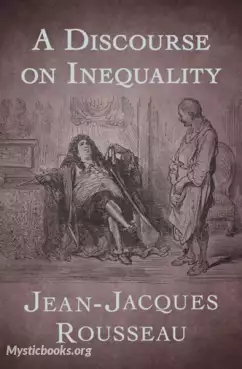
Discourse on Inequaliy
Discourse on the Origin and Basis of Inequality Among Men also commonly known as the "Second Discourse", is a 1755 work by philosopher Jean-Jacques Rousseau. Rousseau first exposes in this work his conception of a human state of nature, broadly beli...
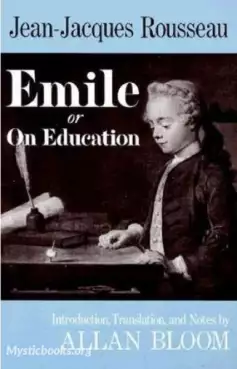
Emile
Emile, or On Education is a treatise on the nature of education and on the nature of man written by Jean-Jacques Rousseau, who considered it to be the "best and most important" of all his writings. Due to a section of the book entitled "Profession of...
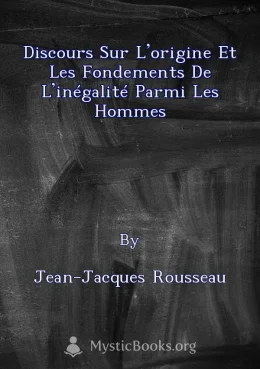
Discours sur l’origine et les fondements de l’inégalité parmi les hommes
De l’inégalité parmi les hommes est un essai philosophique d’une centaine de pages environ, richement annoté par l’auteur, introduit par une lettre de louanges à la République de Genève ainsi que par une préface de l’auteur datée du 12 Juin 1754.
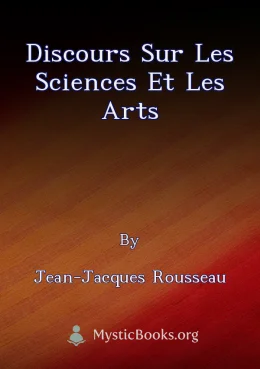
Discours sur les sciences et les arts
Le Discours sur les sciences et les arts est un texte de Jean-Jacques Rousseau écrit dans le cadre du concours de l’Académe de Dijon de 1750. Lauréat du concours, Rousseau voit son essai fort commenté et lui doit sa célébrité, bien avant son opus mag...
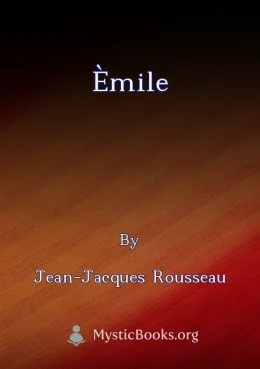
Èmile
Emile, or On Education is a treatise on education by Jean-Jacques Rousseau, published in 1762. It is a foundational text in the history of education, presenting Rousseau's radical views on how children should be raised and educated. He argues for an...